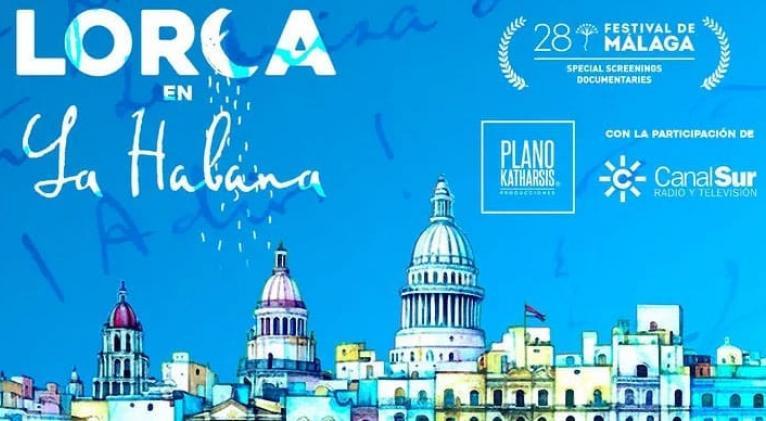Lorca Was Happy in Havana
especiales

Another Andalusian, Joaquín Sabina, says that you shouldn't try to return to the place where you were happy. However, Lorca returns time and again to the island where, according to the makers of the documentary Lorca in Havana, they found "something that wasn't even known in Spain, that other happy Lorca..."
They understand that this image has been little disseminated in Spain "due to issues related to the civil war, perhaps, because he was a martyr." However, the audiovisual triptych reveals him as casual, almost adventurous, through the testimonies of his contemporaries and interviews with experts such as Ciro Bianchi and Urbano Martínez Carmenate.
Also from Andalusia, Antonio Manuel and José Antonio Torres share the script and direction of the documentary, which they conceived in three parts: "First, there's a narration by an actor who plays Federico, because we didn't use a fictionalized version of him, but rather wanted to make it clear that he's an actor. The actor creates a distance with the viewer, because no one knows how Federico moved, no one knows how he spoke. This grants him interpretive freedom, but also doubles his credibility: when the viewer knows it's not Federico, they suddenly begin to believe it seems to me a masterful move to avoid the "maybe he didn't speak like that," "maybe he didn't behave like that." This monologue is the equivalent of the voiceover in a conventional documentary. We didn't want to use a voiceover, but a live voice," explains Antonio Manuel.
"The other part of the documentary is the fictionalized interviews. We also wanted them to be live voices, especially because in both cases the discourse is no longer historicist, but sensorial. The last part of the triptych is what endorses everything that's happening before, which is the part of the experts," he added.
Figures like Flor Loynaz, Lidia Cabrera, Nicolás Guillén, José María Chacón, and Adolfo Salazar speak in the first person, embodied by a cast that captured their essences and those of their relationship with the Spanish poet, writer, and playwright.
A work full of symbols and truths, where Lorca, Cuba, and the Cubans with whom he spent months playing the protagonists. Antonio Manuel notes that, "when the film begins, it says: Federico was born in Cuba and ends up going to die. He says he was born in Cuba dressed in white and dresses in black to travel, packing the same suitcase he packed to return from Cuba to Spain. It's as if, deep down, you're folding your life in half, and that turning point was his stay in Cuba."
The director is satisfied with what has been a collective work and is grateful for every contribution. In particular, he recalls: "The first time I saw the staged play, with the actor who plays Lorca, he said to me: 'Look, Antonio Manuel, I felt like a dancer dancing your words.'"
Within the infinite universe of the author of Yerma, Blood Wedding, and The House of Bernarda Alba, Antonio Manuel and José Antonio chose Cuba. Why? Beyond friends and bohemian life, what connected Lorca so deeply to Cuba?
"Look, Federico was asked about the taking of Granada, a completely anachronistic celebration that is kept in Spain and represents that dual soul we Spaniards have, commemorating the conquest of Nasrid Granada by the Catholic Monarchs. When they asked Federico: 'What do you think of all that?' His answer was: being from Granada makes me feel a sympathetic understanding for the persecuted." And he says: for the gypsy, for the Jew, for the black man, for the Moor that we all carry within.
"What he has just done is portray the intertwined soul of Andalusia and Cuba. Because you have heard the word "black" quite normally, but the fact that Federico spoke of "black" in that response regarding the taking of Granada is because he was in Cuba, and because when he arrived in Cuba and saw the blacks, the gypsies, he saw their kaleidoscopic soul, he saw that within blackness was persecution, marginalization, but also resistance. And resistance with the most powerful weapon that has been granted to both of us, sister peoples: joy. This people, like mine, is aware that life is ephemeral, that we are a scratch in eternity, and no matter how much all the persecution hurts us, all that’s done to us, this people, which is also mine, says: take away from me what you want, but you are not going to steal my dignity or my joy.
Translated by Amilkal Labañino / CubaSi Translation Staff














Add new comment